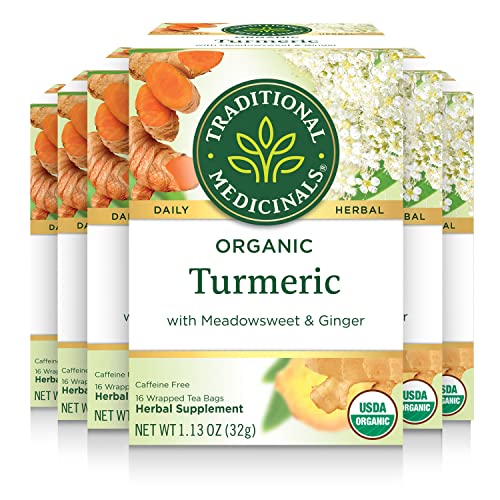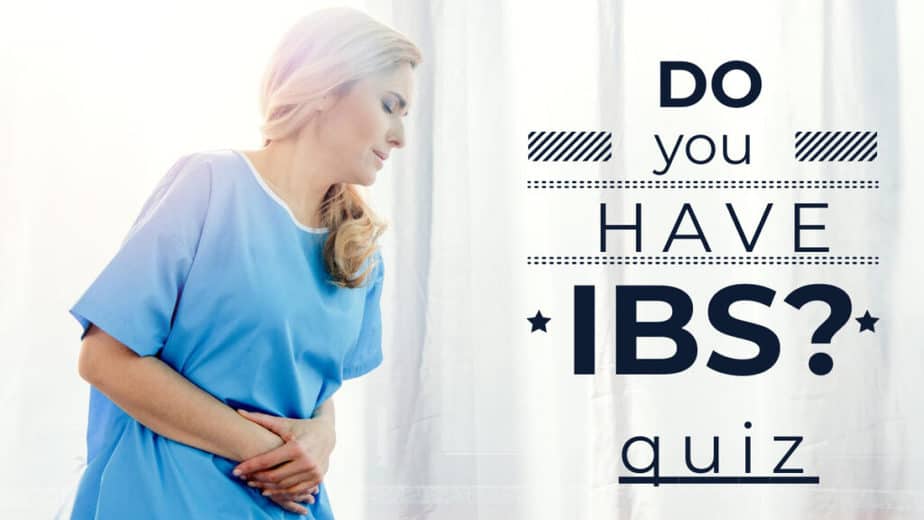Tea, a beverage cherished worldwide, is not just known for its comforting warmth but also its potential therapeutic properties.
For those grappling with IBS, the right tea can be a beacon of relief. Many people will ask – Can you drink tea with IBS?
Yes, there are many teas that are good for IBS symptoms, but there are also certain teas that are bad for IBS.
Dive into this guide to discover the best teas that can alleviate IBS symptoms and those that might exacerbate them.
Tea and IBS: A Delicate Dance
IBS, with its unpredictable flare-ups, often leaves sufferers seeking solace in dietary adjustments. Tea, with its diverse range, offers both potential relief and triggers.
While some teas can soothe the gut, others might stimulate it, making the choice of tea crucial for those with IBS.
People who suffer from IBS often experience symptoms of bloating, diarrhea, constipation, and severe stomach cramping lasting from days, weeks, or even months at a time.
There is currently no cure for IBS, but there are things that can be done to help control IBS symptoms. The symptoms presented may cause an individual to become dehydrated.
Therefore, people with IBS must drink enough fluid to keep their bodies hydrated and to help the stool move through the intestines. Learn more about the Best Treatments for IBS.
For many, drinking water can be a chore for those who find it tasteless and boring. This inevitably makes it difficult to maintain a healthy fluid intake.
Imagine if there was a way that you could consume water without the bland taste… Tea!
Drinking tea is a fantastic way to stay hydrated. Not only are they more flavorful and warm, but many also come with benefits that can ease the negative effects of IBS.
However, it’s important to be vigilant and to know which teas you can and can’t drink. There are many teas out there that look and taste great but can worsen the symptoms of IBS.
Knowing which teas help IBS and knowing the safe amount you can consume is challenging. You will learn about the best and worst teas for IBS.
It will include tips on drinking tea safely offering all the information and tips you need to find the right tea for you.
- Related article: IBS and Water
The 5 Best Teas for IBS Review
Teas have been a staple in traditional medicine for centuries. For IBS sufferers, the right tea can be a game-changer. Here’s a closer look at the top teas that can offer relief:
1. FGO – Organic Ginger Tea Bags
FGO’s organic ginger tea offers premium ginger roots from India. This quality grade organic tea is the best tea for IBS sufferers because it has no FODMAPs.
The ginger root has been known to help control nausea and indigestion. That’s another reason why many people like to drink ginger tea for IBS.
This tea is great for promoting movement in the intestines in a way that is gentle and not as harsh as caffeinated teas. Its strong flavor is nicely accompanied by lemon and honey.
These certified organic eco-conscious tea bags are not only made in biodegradable kraft bags, but they are also resealable and reusable.
Each tea bag is constructed from abaca hemp fiber paper that is free from dyes, adhesives, glue, and chlorine.
The only packaging included is the outer box and the tea bags. There are no extra strings, bags, or waste.
With a long expiration date, these tea bags last over 1 year. With 100 bags included in a box, this tea is highly sustainable.
Pros
- Certified organic, USDA organic, and Non-GMO – each box includes 100 eco tea bags in resealable natural kraft bags
- Abaca hemp fiber paper – free from dyes, adhesive, glue, and chlorine bleach. No excessive material such as strings, bags, or extra waste – just tea
- The long expiration date of 1+ years – allowing for longer use
- Resealable zipper – 5 layer structure with foil lining, round corners, and a tear notch for easy opening
- Premium – 100% raw ginger root, caffeine-free and no FODMAPs
Cons
- You may need to use 2 bags for extra strength
2. FGO – Organic Peppermint Tea Bags
FGO’s organic peppermint tea offers premium peppermint leaves from California. This tea offers relief of bloating and spasms associated with IBS as it has no FODMAPs.
With 100 included, all filled with high-quality, premium peppermint leaf, this tea is highly refreshing with a bright, minty flavor.
The eco-conscious tea bags are constructed from abaca hemp fiber paper which is free from dyes, adhesives, glue, and chlorine bleach. It is certified by USDA organic and certified organic farmers.
Pros
- Certified USDA Organic and Certified Organic Farmers – Filled with premium peppermint leaf
- 100 sustainable tea bags – constructed from Abaca hemp fiber paper with no additional waste such as string, stables of bags, only high-quality tea
- Premium – no caffeine or FODMAPs
Cons
- Sometimes peppermint can make acid reflux and heartburn worse
- Related article: Does Yogurt Help With Acid Reflux?
3. FGO – Organic Green Tea Bags
FGO’s green tea offers organic green tea sourced from ancient tea-growing regions in China. This tea gives a natural boost of plant-based energy from naturally occurring caffeine.
While this green tea is low in FODMAPs and therefore suitable for those with IBS, it should be consumed in moderation due to the caffeine content. Caffeine can trigger contractions of the gut and bring in diarrhea.
- Read More: Does Green Tea Affect IBS?
Including 100 tea bags filled with 100% raw green tea, this tea is of premium grade and certified USDA organic and non-GMO.
Each tea bag is made sustainably from abaca help fiber paper, ensuring that it is biodegradable and reusable. Each one is free from dyes, glue, chlorine bleach, and any unnecessary additional material.
Pros
- 100 tea bags – filled with premium green tea
- Certified USDA Organic & Non-GMO – Organic green tea blended, filled into tea bags, and packed into foil-lined kraft bags
- Eco-friendly – Constructed from Abacá Hemp Fiber Paper. Free of dyes, adhesive, glue, and chlorine bleach. No unnecessary waste
- Premium – 100% raw green tea leaves
- Naturally-occurring caffeine – a boost of plant-based energy
Cons
- Contains caffeine which may exacerbate IBS symptoms in people with diarrhea predominant or mixed IBS
4. Heather’s Tummy Teas – Organic Fennel Tea for IBS
Heather’s Tummy Teas Organic Fennel Tea for IBS offers relief from spasms by relaxing the gut and easing IBS bloating, gas, and abdominal pain. This tea is great for helping to regulate contractions and aiding gas expulsion. With no FODMAPs, gluten, or caffeine this IBS-specific tea is great for easing IBS symptoms.
This high-strength tea provides organic digestive support created by its fennel seed oil strength that offers quick relief and immediate bloating support.
This tea is packed full of flavor with a distinct licorice taste. As this tea is classified as a product of medical food for the dietary management of irritable bowel syndrome, is it classified as GRAS (generally recognized as safe) by the FDA.
Normal fennel tea includes high FODMAPs and caffeine and is not suitable for IBS sufferers. Therefore, Heather’s Tummy Teas Organic Fennel Tea offers a brilliant solution that enables IBS sufferers to enjoy the taste and benefits of fennel without the FODMAPs and caffeine.
Pros
- Suitable for IBS – Made with organic, whole seed fennel that has especially high volatile oil levels, CRC Kosher & has no gluten, preservatives, or FODMAPs
- Medicinal strength – natural and organic relief for IBS symptoms
- Bloating support – Each large size tea bag has 2 to 3 times the amount of tea per bag compared to other brands, for a medicinal-strength brew
- Fiber biodegradable tea bag mesh – organic and eco friendly
Cons
- This product is not suitable for pregnant women
- Consult a medical professional before taking fennel as it may interact with other medication
5. Traditional Medicinals – Organic Turmeric with Meadowsweet and Ginger
Traditional medicinals’ organic turmeric with meadowsweet and ginger offers a medley of flavors and features that ease abdominal pain.
Each ingredient offers a plant-powered benefit that supports a healthy response to abdominal pain and inflammation. This tea is ideal for those who suffer from IBS.
This tea is sustainably sourced from high-quality farms, guaranteeing medicinal grade plants. With a warm, earthy taste, this tea is nicely paired with lemongrass and cinnamon.
Pros
- Organic – This tea is Non-GMO verified and all of the ingredients are certified organic, kosher, and caffeine-free
- 96 tea bags – with each bag offering plant-powered benefits to support a healthy response to inflammation
- Sustainably sourced medicinal grade plants – high-quality farms or wild collected herbs from ethical trading partnerships
Cons
- A hint of spice
Choosing the Right Tea for IBS: A Buyer’s Guide
When selecting a tea for IBS, it’s not just about flavor but also its impact on your gut. Here are key considerations:
- Caffeine Content: Caffeine can stimulate the gut, potentially leading to discomfort or diarrhea. Opt for low or caffeine-free teas.
- FODMAPs: Some teas are high in FODMAPs, known triggers for IBS symptoms. Familiarize yourself with these to make informed choices.
- Natural Ingredients: Opt for teas with natural, organic ingredients, minimizing the risk of additives that might irritate the gut.
Caffeine
Caffeine acts as a gut stimulant that can cause abdominal pain and discomfort and diarrhea. Therefore, coffee and strongly caffeinated teas have the same effect.
Those who suffer from IBS are advised to avoid such drinks as they could cause symptoms of IBS to worsen or flare-up.
- Related Article: Is Coffee Good or Bad for Gut Health?
FODMAPs
FODMAPs are a group of carbohydrates known for triggering digestive symptoms such as bloating, cramping, diarrhea, gas, and stomach pain.
Some foods and drinks contain more FODMAPs than others. Following a low FODMAP diet can reduce the symptoms of IBS.
High FODMAP teas include sweet tea, chai tea, chamomile tea, and fennel tea.
Teas To Avoid and Tread Lightly With
While many teas offer relief, some can be potential triggers:
- Fennel Tea: High in FODMAPs, it might make your IBS symptoms worse. However, medicinal-grade fennel tailored for IBS can be an exception.
- Highly Caffeinated Teas: These can stimulate the gut, potentially leading to diarrhea or discomfort.
- Sweetened or Flavored Teas: Added sugars or artificial sweeteners can be IBS triggers. Always check the ingredients.
The Art of Choosing the Right Brew
Tea, with its myriad flavors and therapeutic properties, can be both a friend and foe to those with IBS. By understanding the nuances of each type and being aware of potential triggers, one can enjoy the soothing embrace of a warm cup of tea without the fear of flare-ups.
Remember, it’s all about informed choices and listening to your body. If your body says to stop drinking tea, listen to it.
Frequently Asked Questions
Does Tea Make IBS Worse?
Not all teas are created equal. While some, like ginger or peppermint, can alleviate symptoms, others might exacerbate them. It’s all about choosing the right tea and monitoring your body’s response.
Teas such as ginger, turmeric, peppermint have no caffeine or FODMAPs. These teas will help to ease IBS symptoms. Tea with caffeine should be consumed in limited quantities and those with high FODMAPs should be avoided.
Can Tea Get Rid Of IBS?
While tea can offer relief from symptoms, it’s not a cure for IBS. It’s best used as a complementary approach, alongside other treatments and dietary adjustments.
Certain teas, such as the ones presented above, include properties that help to relieve and ease symptoms of IBS by relaxing abdominal muscles and soothing pains.
Where Can I Find The Teas Mentioned?
You can find the teas mentioned in some grocery stores, but it may not always be in stock. It’s best and easiest to find and buy them online at Amazon.com.
Read more articles on IBS and liquids:







